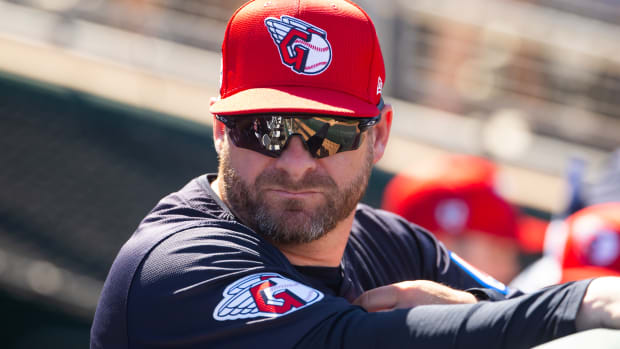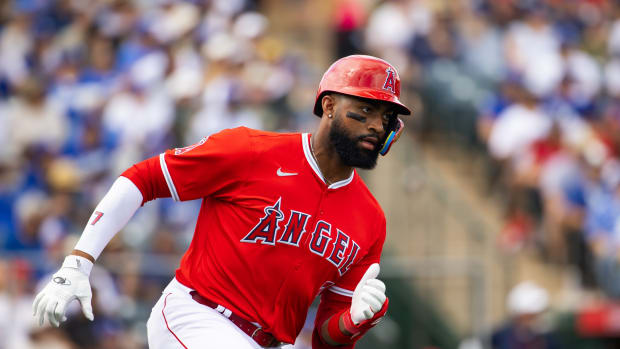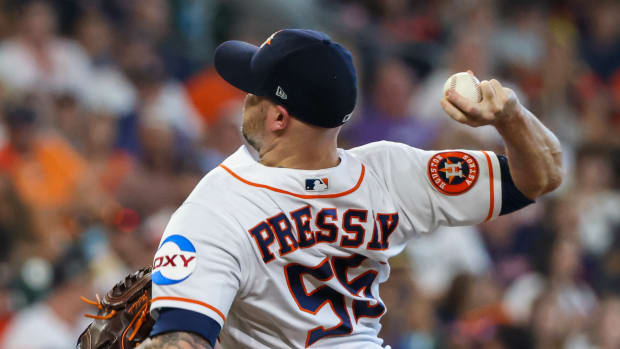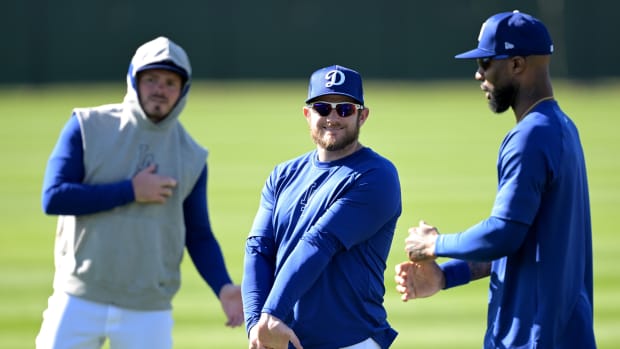After One Correct Astros Prediction, Calling a Repeat Proves Less Fruitful
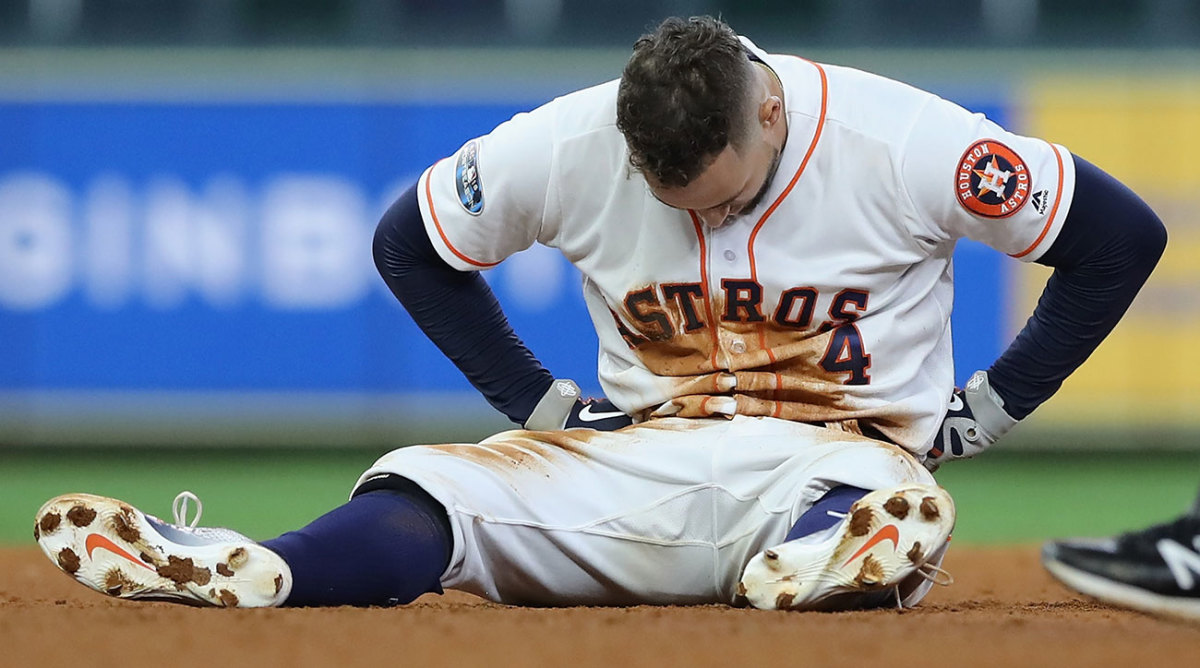
The man in the thick glasses and Astros hat meekly approached me at a bookstore in Houston. By last July, I'd spent seven months fielding questions from all sorts of people about the future. Who will win the World Series in 2020? (The Yankees, I'm afraid.) What stock should I buy? (That of the online retailer named after a certain South American river, I suppose.) What are the Mega Millions numbers? (I wish I knew.)
"When will I have a child?" the man in the Astros cap asked. Those previous queries had always been posed at least half-jokingly, and I thought the man's question had been, too. I laughed. He didn't. He kept peering at me through his lenses, expectantly. "My understanding is that it's largely up to you," I said. He smiled. I signed his copy of my book—Astroball: The New Way to Win It All—and we shook hands. "Good luck," I called after him.
Usually, sportswriters' predictions are met with only ridicule, and this was certainly the case, at first, for the one we made on the cover of the June 30, 2014, issue, with my byline attached. The Astros were coming off the worst three-year stretch for any major-league team in half a century—they were called the Lastros or the Disastros—and yet we envisioned a better, and highly specific, future for them. YOUR 2017 WORLD SERIES CHAMPS, read the cover line, to the right of an image of George Springer swinging the bat.
BACCELLIERI: Baseball Won't Nearly as Much Fun Without Adrian Beltré
Almost nobody agreed, even in Houston. Especially there, actually. It was "more of an attention-grabbing, perhaps even tongue-in-cheek projection than a prediction," sniffed the Houston Chronicle. Then, on Nov. 1, 2017, José Altuve threw to Yuli Gurriel to clinch the Astros' first World Series title in their 56-year history. And, suddenly, I was a sportswriter who knew what I was talking about.
Over the next month or so, I spoke with more than 60 media outlets, not just across the country but in Australia, Canada, Ireland, New Zealand and the United Kingdom too. A newspaper in Zimbabwe even wrote, THE PREDICTION MADE GOOD. Pristine copies of the original three-year-old issue of SI started selling for more than $1,000 on eBay. On ESPN, Bob Ley and Jeremy Schapp gave me a nickname: Astrodamus.
I was often asked how much money I'd wagered on the prediction. Sadly, the answer was none, although I was pleased to learn that a good number of people had: Las Vegas sports books sustained a record $11.4 million loss on baseball in November 2017. The best part about the outcome was that it shifted focus from the prediction itself to the reasons we made it in the first place. I had spent a year negotiating access to the Houston front office—promising only that I'd approach an organization that had become a punch line without any preconceptions—and in the cover story, I explained and wrestled with the novel strategies the club was pursuing to rise from the cellar. It had always been more than a hot take.
Of course, the Astros' accomplishment belongs to the Astros, to the players and to the executives who had assembled the team. Their title was the result of their open-mindedness and hard work, from the way they had pushed far beyond Moneyball to develop a process that relied not just on data and algorithms, but also on the power of human observation. It had come from their realization that positive results were not a matter of man or machine, but of man plus machine. All I had done was identify the promise in what the Astros were up to.
There was another element to the prediction's success, inherent in any prediction that comes true. Sig Mejdal is a former blackjack dealer and NASA scientist who became the Astros' Director of Decision Sciences—one of the people, along with general manager Jeff Luhnow and others, who envisioned and executed Houston's man-plus-machine philosophy. "The future is weirder than we imagine," Mejdal says in Astroball. "The future is a lot weirder than we can imagine. If you think you've got it figured out, just wait. You will be wrong." That's because of a factor for which even someone like Sig will never be able to account: luck.
On Nov. 2, 2017, some friends of mine who work in finance reached out to me with identical two-part messages: First, congratulations on your prediction; second, never make another one. They had seen many people in their industry—like the few who called the stock market crash of 2008—damage their reputations when they were never right about anything again.
VERDUCCI: Six Big Questions for This Year's Hall of Fame Ballot
It was too late for me. The previous evening, I had doubled down, writing a story in which I predicted that the Astros would repeat as champions. By most metrics, the 2018 Astros were better than the '17 champions. In fact, by regular-season run ratio—runs scored against runs allowed—they were the fifth-best team since World War II. But then, in the ALCS, they ran into the similarly improved Red Sox, as well as a dubious call by umpire Joe West and a game-saving dive by Boston leftfielder Andrew Benintendi. Houston lost. That same week, Amazon's stock, which had soared from $1,100 the previous Nov. 1 to more than $2,000, fell to $1,770. And I bought a Mega Millions ticket, with the chance to win more than a billion dollars. I matched one number (thanks to Quickpick) and won two bucks.
My career as a clairvoyant was over. Still, I had learned something: While no one can see the future, you have a much better shot if you're diligent and unbiased. But whether you're trying to win a World Series—or predict who is going to win a World Series—or conceive a child, you still need a bit of luck.































